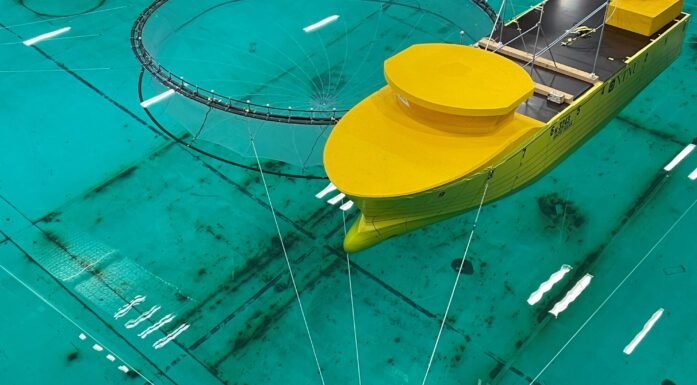By Valentina Ruiz Leotaud*
Canada.- Technological advances are allowing commercial fishing fleets to double their fishing power every 35 years and put even more pressure on dwindling fish stocks, new research has found.
Researchers from the Sea Around Us initiative at the University of British Columbia analyzed more than 50 studies related to the increase in vessels catching power and found that the introduction of mechanisms such as GPS, fishfinders, echo-sounders or acoustic cameras, has led to an average two per cent yearly increase in boats capacity to capture fish.
This means that if a fleet has 10 boats today, one generation later, the same 10 boats have the fishing power of 20 vessels. The next generation, they have the power of 40 boats, and so on, said Deng Palomares, the Sea Around Us project manager and lead author of the study, which was published today in Ecology and Society.
An increase in fishing power is known as “technological creep” and it’s usually ignored by fisheries managers who are in charge of regulating how many days and hours and technique each vessel under their oversight is supposed to fish in a given period.
“This ‘technological creep’ is also ignored by most fisheries scientists in charge of proposing policies,” said Daniel Pauly, the Sea Around Us principal investigator. “They tend to conduct short-term studies that only take into account nominal effort, which is, for example, the number of boats that fish using longlines in one year, employing ‘x’ number of people. However, they are disregarding the effective effort those vessels are deploying thanks to the technology that allows them to either maintain their catches or catch more fish.”
In their paper, Palomares and Pauly propose a new equation that allows fisheries managers and scientists to easily estimate technological creep precisely and determine a fleets effective effort.
“This is important because if you dont understand that the increase in power is happening, then you dont understand that you can deplete a stock,” Pauly said. “We already know that marine fisheries catches have been declining by 1.2 million tonnes per year since 1996 so, by prompting boats to fish deeper and farther into the high seas, these new technologies are only helping the industry compensate for the diminishing abundance of fish populations.
Reference:
Palomares, M. L. D., and D. Pauly. 2019. On the creeping increase of vessels fishing power. Ecology and Society 24(3):31.
https://doi.org/10.5751/ES-11136-240331 https://www.ecologyandsociety.org/vol24/iss3/art31/
Stay Always Informed
Join our communities to instantly receive the most important news, reports, and analysis from the aquaculture industry.
Source: The University of British Columbia
Editor at the digital magazine AquaHoy. He holds a degree in Aquaculture Biology from the National University of Santa (UNS) and a Master’s degree in Science and Innovation Management from the Polytechnic University of Valencia, with postgraduate diplomas in Business Innovation and Innovation Management. He possesses extensive experience in the aquaculture and fisheries sector, having led the Fisheries Innovation Unit of the National Program for Innovation in Fisheries and Aquaculture (PNIPA). He has served as a senior consultant in technology watch, an innovation project formulator and advisor, and a lecturer at UNS. He is a member of the Peruvian College of Biologists and was recognized by the World Aquaculture Society (WAS) in 2016 for his contribution to aquaculture.







